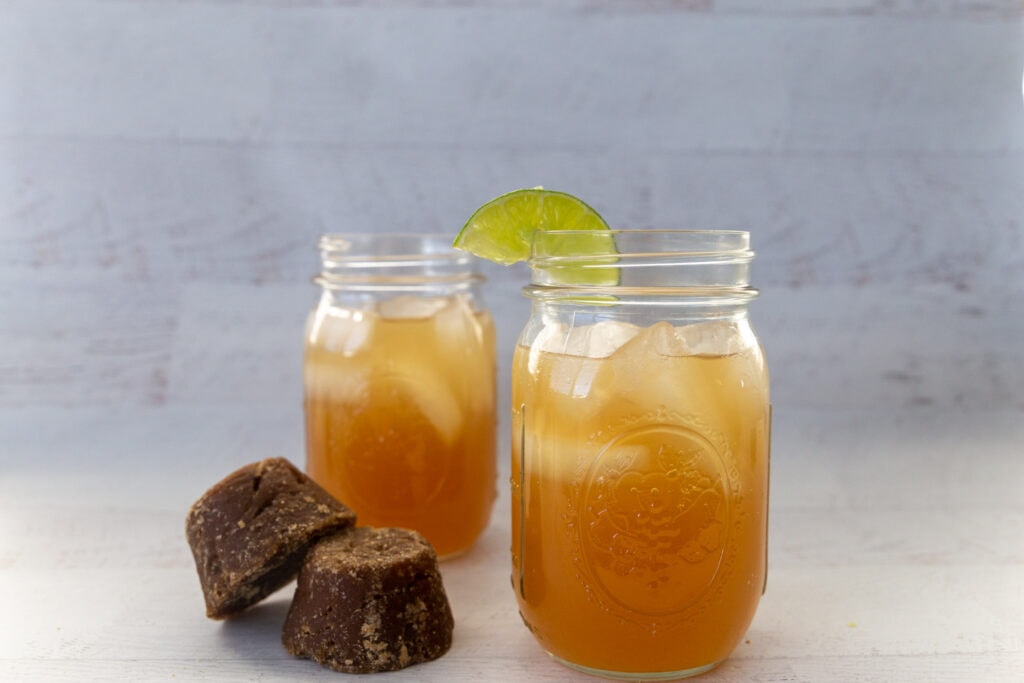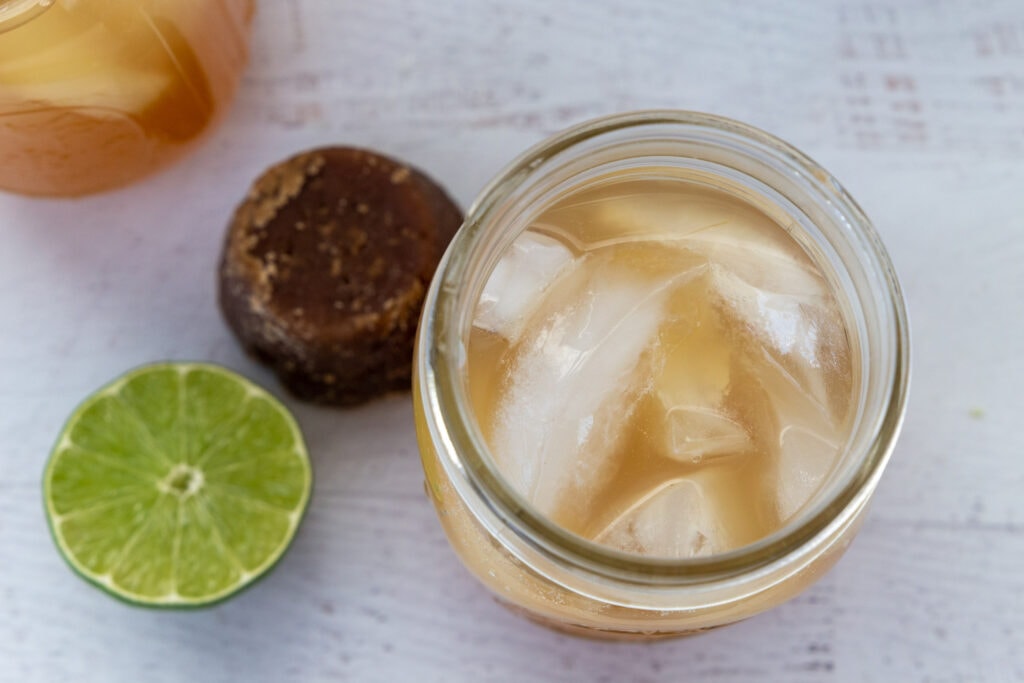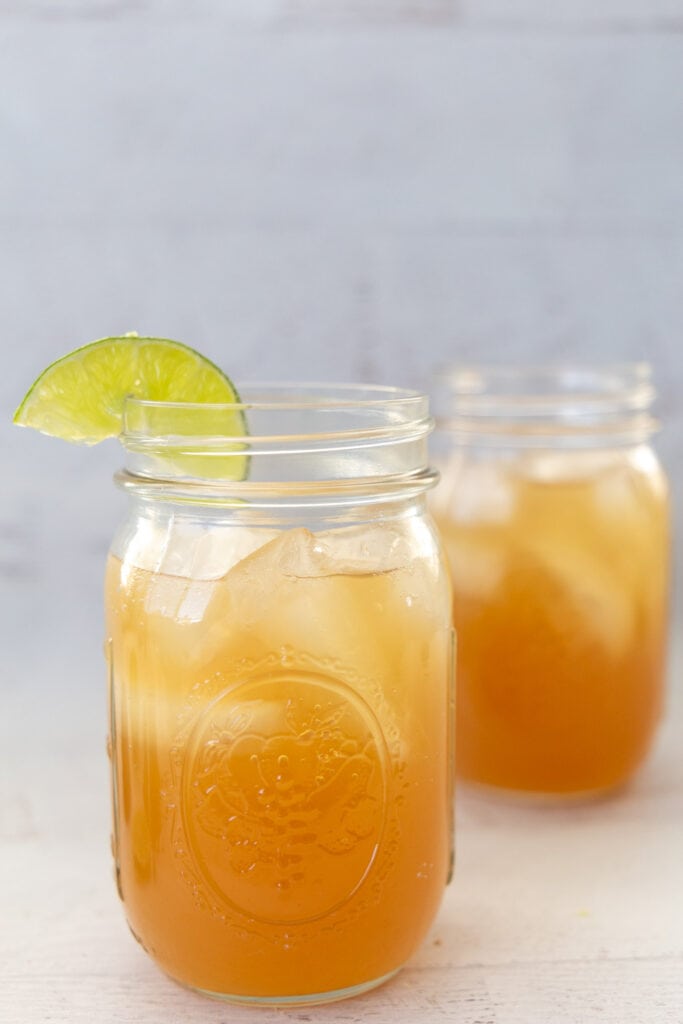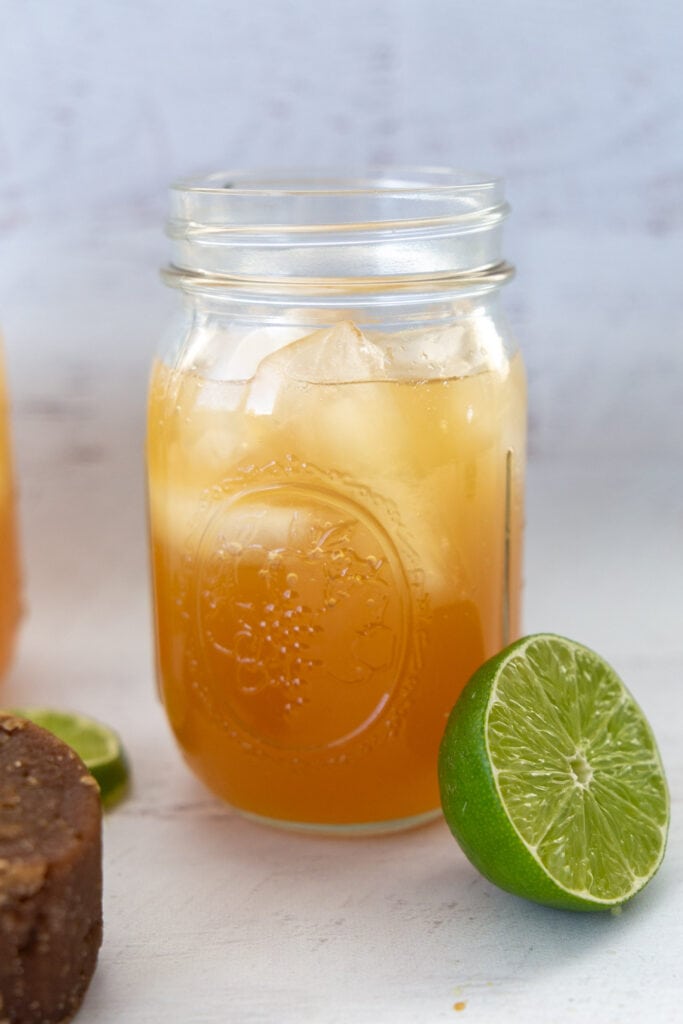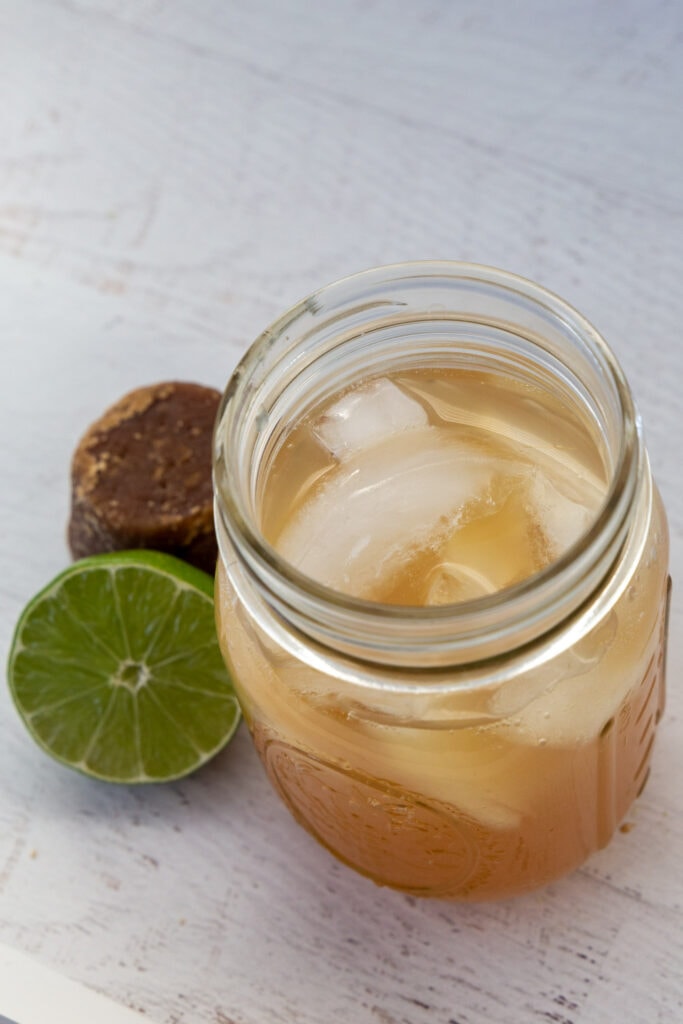Agua de Sapo
This post may contain affiliate links.
Agua de sapo is a refreshing drink from the Caribbean side of Costa Rica- and its name also happens to translate to “frog water.”
About This Recipe
At first glance, agua de sapo feels like it might be a sort of gross recipe. Hence the picture above to calfriy that agua de sapo (frog water in English) is actually a delightful and refreshing drink unique to Costa Rica.
The recipe has its origins on the Caribbean side of Costa Rica, and combines the tapa de dulce made principally in the Central Valley region of Costa Rica with ginger flavor brought over by black workers during the time of the railroad construction.
I first had this drink at Finca Libertad Pura, one of my favorite places to horseback ride in Costa Rica. After a long, hot day of riding, we returned to the restaurant to drink ice cold agua de sapo and I was hooked.
The flavor of this drink is something akin to an iced sun tea with ginger added. It’s truly a unique drink. the ingredients are tapa de dulce (more on that in a second), lime and ginger. Boiled and strained and then left to cool, it’s a simple recipe.
What is tapa de dulce?
The main ingredient in the agua de sapo is tapa de dulce, a compact, rounded sweetener made of browned sugar cane.
The tapa de dulce is generally not found outside of Costa Rica, but a similar ingredient is found in most Hispanic grocery stores, making this a pretty easy recipe to replicate a home.
The name you will look for is piloncillo or panela. These come in a cone-like shape, and you will need 2-3 for this recipe.
Agua de Sapo Recipe
Printable recipe below
Ingredients
- tapa de dulce, piloncillo o panela
- ginger
- water
- limes
Instructions
Place 2 liters of water and your tapa de dulce in a large saucepan or stockpot.
Boil on medium heat until the tapa de dulce is dissolved, stirring occasionally.
While the tapa de dulce is dissolving, peel and chop your ginger.
Juice the limes.
Once the tapa de dulce has melted, add the ginger and lime juice. Simmer for 5-10 minutes.
Strain the juice into a large container and add the other 2 liters of water.
Place in the fridge until cold. Serve ice cold.
This would be a great recipe to freeze into homemade Costa Rican ice cream!
Substitutions
You can substitute 2.5 cups of dark brown sugar for the tapa de dulce
If you are in Costa Rica you will use “limones criollos” and in the US you will use just regular green lime or a key lime.
I use Dorot frozen ginger cubes that I find at Wal-Mart or Trader Joe’s instead of using the fresh ginger. It’s just easier. This recipe uses a whole package.
Variations
You can omit the ginger.
Some regions add a stick of cinnamon in.
Some add 1 stick of cinnamon.
Agua de Sapo Costa Rica
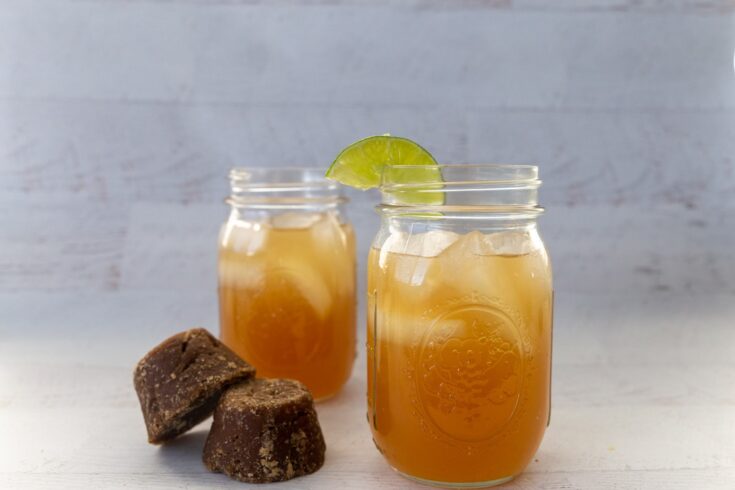
Agua de sapo is a refreshing drink from the Caribbean side of Costa Rica- and its name also happens to translate to "frog water."
Ingredients
- 1 tapa de dulce, piloncillo o panela (about 12 ounces)
- 5 ounces of ginger
- 2 liters of water
- 5 limes, juiced
Instructions
- Place 2 liters of water and your tapa de dulce in a large saucepan or stockpot.
- Boil on medium heat until the tapa de dulce is dissolved, stirring occasionally.
- While the tapa de dulce is dissolving, peel and chop your ginger.
- Juice the limes.
- Once the tapa de dulce has melted, add the ginger and lime juice. Simmer for 5-10 minutes.
- Strain the juice into a large container and add the other 2 liters of water.
- Place in the fridge until cold. Serve ice cold.
Nutrition Information:
Yield:
8Serving Size:
1Amount Per Serving: Calories: 28Total Fat: 0gSaturated Fat: 0gTrans Fat: 0gUnsaturated Fat: 0gCholesterol: 0mgSodium: 13mgCarbohydrates: 8gFiber: 2gSugar: 1gProtein: 1g
Please double-check this information with your favorite nutrition calculator.

Christa Jimenez
Welcome! I’m Christa, a former high school teacher married to a handsome Costa Rican and mother of two bilingual daughters. I love all things Spanish and bi-cultural, (especially travel and food!) and you’ll find my observations on life here. Thanks for stopping by

